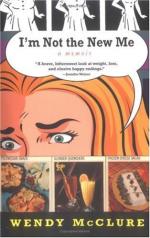In all the intellectual life of the town he took a place. With a few of the leading young men he formed a young men’s lyceum. One of his speeches before this body has been preserved in full. Its subject is “The Perpetuation of our Political Institutions."[4] The speech has not, however, any of the peculiarly original style which usually characterized his efforts.
He came immediately to be a favorite figure in all sorts of local affairs. What he said and did on these occasions is still recollected by those interested in them. “When the seat of government was removed from Vandalia to Springfield in 1836,” says the Rev. Peter Wallace of Chicago “I obtained the contract of taking down the court-house to make a place for the State House. Lincoln, with others, was present to receive the job. ‘Peter,’ he said to me, ’if you succeed as well in building houses as you have in tearing this one down, you will make your mark as a builder.’” Mr. Wallace tells, too, of hearing Lincoln say in a speech, at the funeral of one of their friends: “I read in a book whose author never errs, ’Woe unto you when all men shall speak well of you.’ Our friend will escape that woe, for he would be the exception had he no enemies.”
The most pleasing feature of his early life in the town was the way in which he attached all classes of people to him. He naturally, from his political importance and from his relation to Mr. Stuart, was admitted to the most exclusive circle of society. But Lincoln was not received there from tolerance of his position only. The few members left of that interesting circle of Springfield in the thirties are emphatic in their statements that he was recognized as a valuable social factor. If indifferent to forms and little accustomed to conventional usages, he had a native dignity and self-respect which stamped him at once as a superior man. He had a good will, an easy adaptability to people, which made him take a hand in everything that went on. His name appears in every list of banqueters and merry-makers reported in the Springfield papers. He even served as committee-man for cotillion parties. “We liked Lincoln, though he was not gay,” said one charming and cultivated old lady to me in Springfield. “He rarely danced, he was never very attentive to ladies, but he was always a welcome guest everywhere, and the centre of a circle of animated talkers. Indeed, I think the only thing we girls had against Lincoln was that he always attracted all the men around him.”




